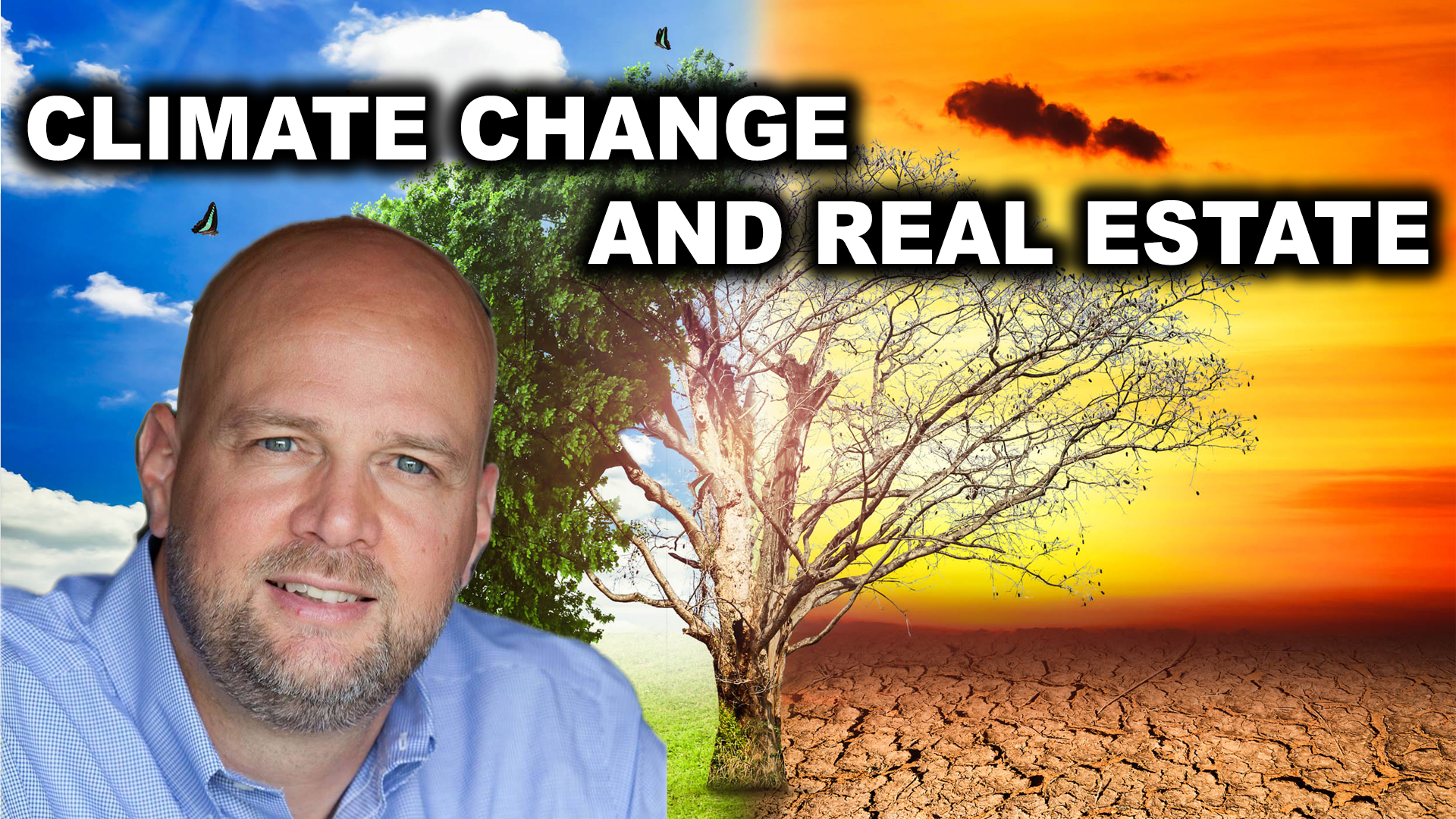Climate Change and its Effects on Real Estate
Anyone who has been paying attention has seen the signs – unusual temperatures, increased storm activity, and severity, broad changes in the seasonal pattern: climate change is very real, and its consequences are immediate and urgent. We’ve been hearing about it for years in the context of environmental stewardship and sustainability, but there’s a critical area in which the issue of climate change has been discussed far less – real estate.
Dr. Doug Bruggeman, the founder of Ecological Services and Markets, hopes to change that. Bruggeman, who moved the Asheville and started his business in 2008, feels that it is critical to recognize and address the impact that real estate development has on the environment. It’s important to understand that impact, he says, so that developers can work to offset it and attempt to have a net positive impact on the environment.
This, he says, benefits both sides of the equation – not only can the environment be positively (or negatively) impacted by real estate development, but vice versa as well. “The real estate market is enhanced by the quality of our environment,” he says, particularly in a region like ours that places such a high value on interaction with and enjoyment of the outdoors.
To help real estate professionals understand and benefit from this relationship between the industry and the environment, Bruggeman has worked to develop what he refers to as climate adaptation real estate services. By creating continuing education opportunities for agents and investors that focus on climate change, and by interacting with local associations and real estate schools, Bruggeman hopes to raise awareness of the issues surrounding climate change and how real estate can be not only affected but also an effector of change, for good or for bad. Doing so has been a slow process, he says, but it’s all about asking for help and making connections. While many industry professionals at first have difficulty seeing the connection between real estate and climate change and can, therefore, be reluctant to participate in an effort to help combat the changing climate, Bruggeman is confident that, through education, this can change.
“Markets only work when buyers and sellers have good information,” he says, and it can be difficult to access quality, research-based information about climate change if you don’t know where to look. He has therefore made it his goal to increase access to such information for those who might not normally encounter it, particularly in the real estate profession.
So what exactly is climate change? According to Bruggeman, it is essentially a broad picture of changing weather patterns across time and space – this can include changes in temperature, seasonal patterns, precipitation, storm events, and more. But even with a concise definition, it can be tricky to communicate the very real impacts of climate change to those who don’t typically deal with it in a professional and scientific context. To help condense the topic for real estate professionals, Bruggeman presents it like this: climate is affected by real estate, which impacts the environment and therefore the climate, and vice versa – the changing climate impacts real estate and housing in many different ways.
One major example that he often presents is that of migration – it has a significant impact on the environment, and the environment has a huge impact on migration patterns. One need only look to coastal migration projections for the next 80 years to see this – by 2100, 13.1 million people in the US are expected to be displaced by rising sea levels in coastal areas. This will present both a burden and an opportunity for real estate markets inland, and agents and investors would do well to be aware of these coming changes to get ahead of the market.
More locally, Bruggeman points to flood plains and wildfire zones. In the mortgage industry, he says, the maps that are often used for flood insurance are not forward-looking – they don’t properly account for the changing climate and what flood zones will look like in the future, and can, therefore, put buyers at risk when they unwittingly purchase property that could be underwater in a relatively short period of time. The same is true of wildfires – while they have not historically been a major problem in our area, in recent years we’ve seen increased wildfire activity that is likely to grow in frequency and severity moving forward. If buyers are unaware of these risks, Bruggeman says, they may put themselves and their property in very real danger.
To help increase awareness of these issues, Bruggeman tries to make pertinent information widely available. While his company offers options for in-person education and curriculum for real estate professionals, it also provides its entire climate change course online through LearnWorlds. By opening up access and keeping costs low, Bruggeman hopes to raise overall awareness of and concern about climate change and how it interacts with real estate, to change the course of things before it’s too late. “Not all properties are equally vulnerable to severe weather events and climate change,” he says, but it’s critical as a professional or as a buyer to educate yourself to avoid undue risk and to begin making positive changes to protect the environment, your livelihood, and yourself.
For more information, visit ESMarkets.com or contact Dr. Doug Bruggeman directly at [email protected].




